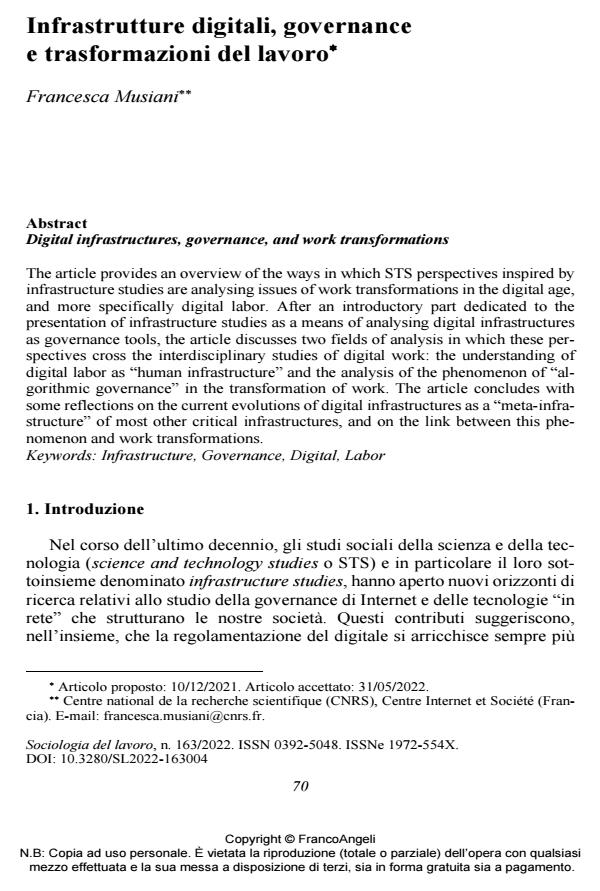Digital infrastructures, governance, and work transformations
Journal title SOCIOLOGIA DEL LAVORO
Author/s Francesca Musiani
Publishing Year 2022 Issue 2022/163
Language Italian Pages 20 P. 70-89 File size 234 KB
DOI 10.3280/SL2022-163004
DOI is like a bar code for intellectual property: to have more infomation
click here
Below, you can see the article first page
If you want to buy this article in PDF format, you can do it, following the instructions to buy download credits

FrancoAngeli is member of Publishers International Linking Association, Inc (PILA), a not-for-profit association which run the CrossRef service enabling links to and from online scholarly content.
The article provides an overview of the ways in which STS perspectives inspired by infrastructure studies are analysing issues of work transformations in the digital age, and more specifically digital labor. After an introductory part dedicated to the presentation of infrastructure studies as a means of analysing digital infrastruc-tures as governance tools, the article discusses two fields of analysis in which these perspectives cross the interdisciplinary studies of digital work: the understanding of digital labor as "human infrastructure" and the analysis of the phenomenon of "algorithmic governance" in the transformation of work. The article concludes with some reflections on the current evolutions of digital infrastructures as a "meta-infrastructure" of most other critical infrastructures, and on the link between this phenomenon and work transformations.
Keywords: Infrastructure, Governance, Digital, Labor
Francesca Musiani, Infrastrutture digitali, governance e trasformazioni del lavoro in "SOCIOLOGIA DEL LAVORO " 163/2022, pp 70-89, DOI: 10.3280/SL2022-163004